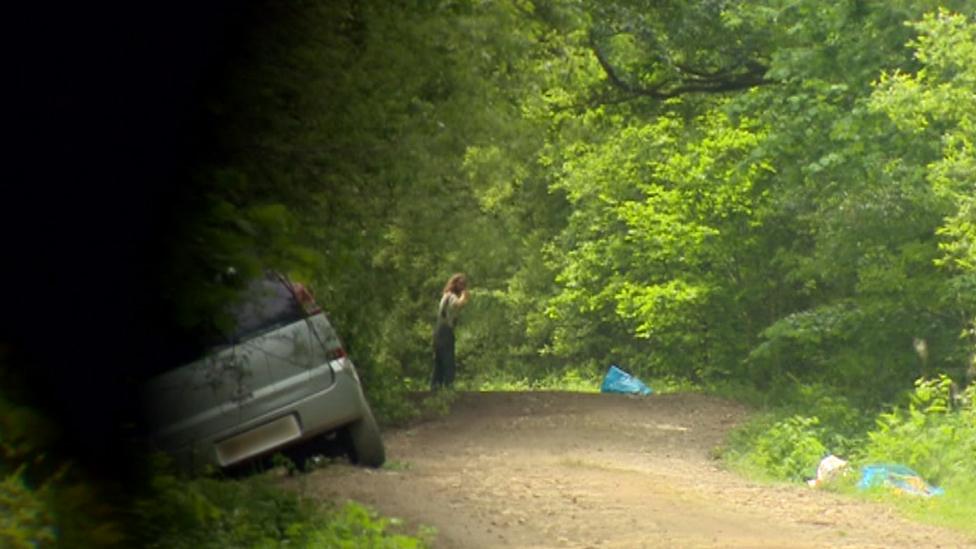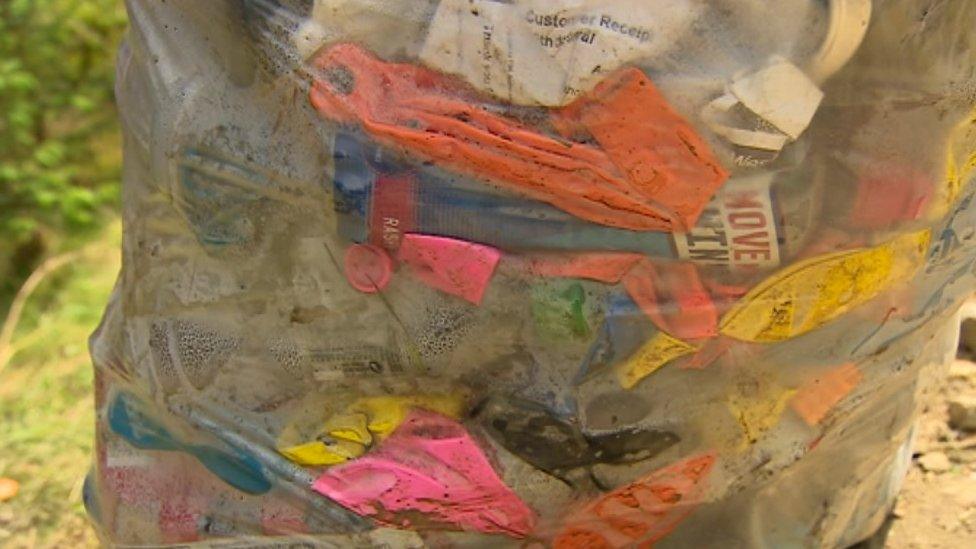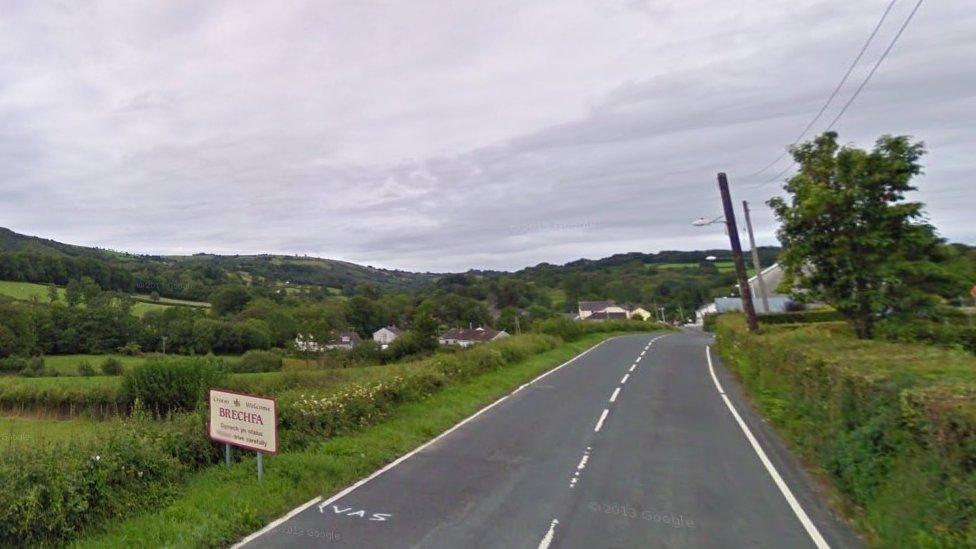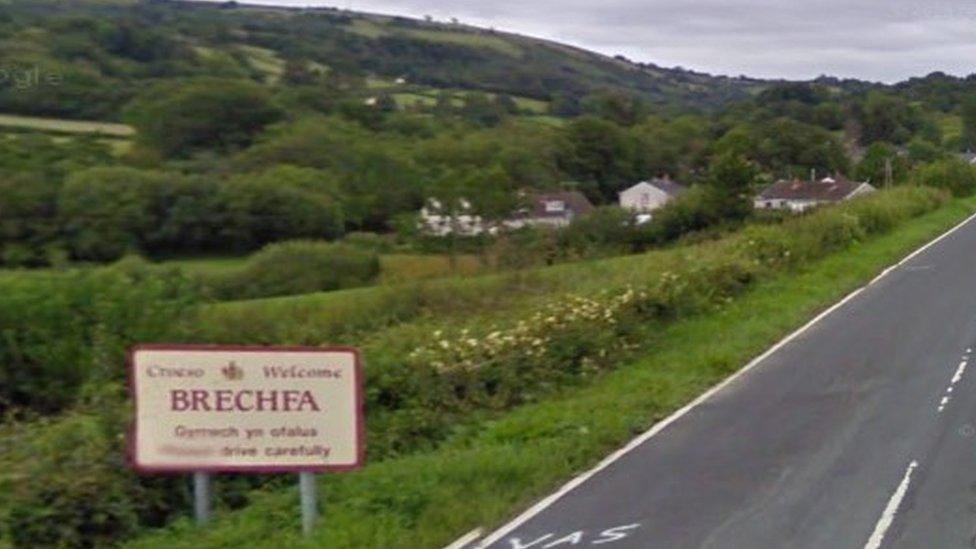'Lessons to be learnt' over Brechfa illegal rave
- Published

Police had intelligence that an illegal rave was to take place in England, but it was moved to Brechfa at "the 11th hour", the commissioner said
Lessons must be learned to stop future illegal raves happening in west Wales, the police and crime commissioner for Dyfed-Powys has said.
Residents said human excrement was among mess left after 1,000 revellers descended on Brechfa, Carmarthenshire.
Dafydd Llywelyn said police and other agencies had to make the region "an inhospitable area" for illegal raves.
He said the force did not have the man-power to move the revellers from the site, 12 miles north of Carmarthen.
Rave "ruined bank holiday weekend"
Residents complained of noise and the mess, including broken bottles, following the weekend rave which is said to have started on Friday evening and continued until Monday.
It is said the rave ended when a Tom Jones song was played.
Some residents have been critical of the police's response and Mr Llywelyn is due to visit the site of the rave to meet the complainants on Thursday.
Mr Llywelyn told BBC Radio Wales the force had received intelligence the rave was due to happen in England but it was changed to west Wales at the "11th hour".
He said trying to move 1,000 people was "very difficult", needing potentially hundreds of officers, a resource which had not been available at the time.
"There was some intelligence information that we were receiving operationally but that changed," he said.
"As you can imagine on a Bank Holiday weekend, with tens of thousands of vehicles and people coming to the Dyfed-Powys area, that's the challenge to respond to something of this nature."

Residents have been picking up some of the mess left at the site of the rave
He said such events were rare but not new in west Wales but the police and organisations, like the council and landowners, now had to "make it the most inhospitable area" to hold such raves.
"We do what we can to try and disrupt and prevent it from happening and we are quite successful in that, except not on this occasion," he said.
Brechfa resident Steven O'Neill said he wanted systems put in place to avoid repeat raves as there had been three in the area in about 13 years.
He suggested local groups could work with police by creating "watch" areas but, ultimately, he said he wanted "quicker response times" from officers and "better liaison between residents and the police".
- Published29 May 2018

- Published27 May 2018
